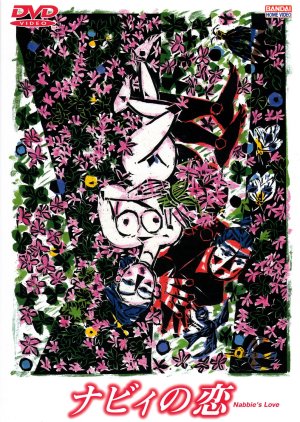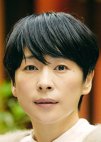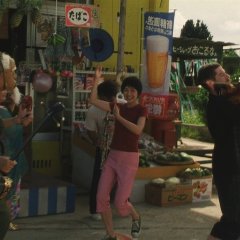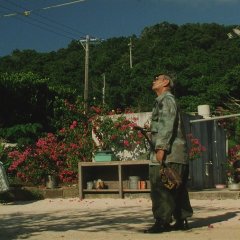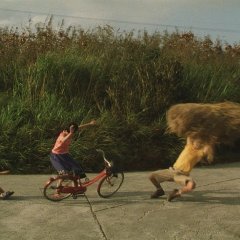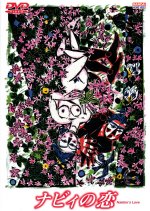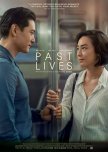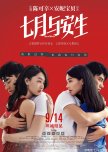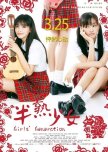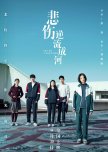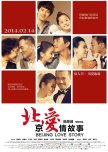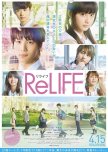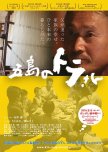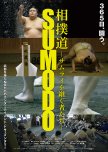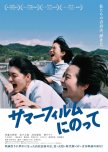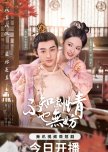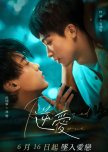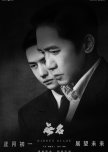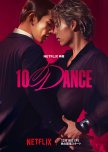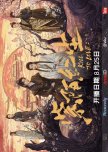Nanako quits her job in Tokyo to return to her home island where her grandfather, Keitatsu and grandmother, Nabbie, still live. The ferry is captained by SunRa, who dressed in a dandy tropical outfit, seems to have some nostalgic link to the island. One day, Nanako sees Nabbie and SunRa in each other's arms. The illicit love affair shocks the conservative islanders. A formal clan meeting is held, the shaman is summoned and her verdict is that Sunra must leave and Nabbie must never see him again. Nanako learns from Keitatsu that 60 years ago, Nabbie fell in love with Sunra but was forced to separate from him because of her family's standing in the community. Sunra had to leave the island, but Nabbie never could forget her lover and she had faithfully written him once a year. The fires of Nabbie's love still smoldered. Edit Translation
- English
- magyar / magyar nyelv
- dansk
- Norsk
- Native Title: ナビィの恋
- Also Known As: Nabbie no koi
- Screenwriter & Director: Nakae Yuji
- Genres: Comedy, Romance
Cast & Credits
- Nishida Naomi Main Role
- Taira TomiNabbie AgarikinjoMain Role
- Oshiro Misako[Elder wife]Support Role
- Taira SusumuSanrâUnknown
- Murakami JunFukunosukeUnknown
Reviews

I like the way the story is told, the way the space the landscape itself shapes the tone of a scene, the way music also tells the story of the island's community, of their feelings and state of being. I also loved how they did the flashbacks to Nabbie and Sun Ra in 1940. The dialogue is also something to pay attention to: In some scenes words are never needed; in others, characters say what they mean, but in other words; and in some, words fall like stones into the still sea.
Only one thing, we are used to the somewhat yellowish tint in Japanese films and series -- but I felt that it was even stronger here? It must have been a conscious choice? Or else I am too used to digitally filmed media? Thinking about it, I notice that I haven't seen a colour film from the 20th century in a while.
It's sad that the film didn't capture the vibrant colours of the sea, the sky and the flowers, I think I would have loved to see that.
I'm glad that JFF provided us with additional material, especially the "Ryukyu Buyo" short (link to the video on YouTube: https://www.youtube.com/watch?v=mSX8VaAV4RQ), which helped a lot with understanding the music and why some of the scenes were acted the way they were.
The story elements of enduring love, leaving the island and coming back, community and spiritualism are probably much deeper than I as an outsider can ever see. It was lovely, and I cried for reasons I cannot explain myself.
Was it good? -- It was! It's deliberately slow, but well told, and I love the way they did the flashbacks to the old love story of Nabbie and Sun Ra.
Did I like it? -- I did. However, this is a film I have to be in the right mood for if I want to enjoy it.
Would I recommend it? -- To those who love to see something different, who don't mind a story that sometimes tells things coming from sideways. However, those who hate the colour palette in Japanese media should probably stay clear.

